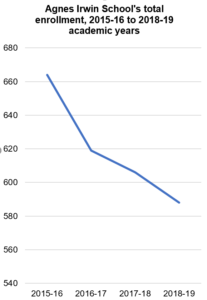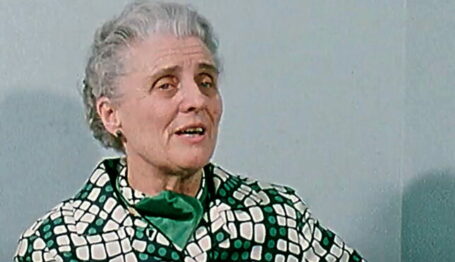Organization Trends
Agnes Irwin and Her Legacy: What Will the Future Hold?


Agnes Irwin and Her Legacy (Full Series)
Educating Young Women | Diversity Policies in Action | Uninspiring Management | What Will the Future Hold?
An Integral Part of a Rich Liberal-Arts Education at AIS
The student was welcomed back. “We remain vigilant for the safety and security of our community,” Hill and Horn continued, and AIS “provide[s] a physically and emotionally safe space that encourages differing and diverse expression and sharing and analyzing different and varied points of view,” of course. “This is an integral part of the rich liberal arts education we foster for our students.”
Hill and Horn conceded some shortcomings in how the school handled the situation, and offered some apologies—for missing, though they didn’t use the words, what Repplier might’ve described as “that quality of poise” possessed by Irwin herself. The email said, “We recognize that we as a School did not address perfectly each step in this situation, and we need to grow, learn, and improve going forward.”
The range of initial parental reactions to Hill’s and Horn’s email included confusion, discomfort, concern, and outrage. Some thought that the poem-writing student should be considered as having violated specific policies in the AIS handbook, according to which “harassment in any form including that based on ethnicity, race, religion, gender or sexual orientation will not be tolerated” and “Words that amount to hate speech cannot be used at AIS.”
As with the transgender incident, many parents saw the poem episode and its aftermath as symbolic of a larger atmosphere—in this case, a racially charged one in which girls were made to feel as if they need to feel guilty about or apologize for being white—and thus privileged.
While the poem’s author did not leave AIS, many others did. From the beginnings of the 2017-18 to the 2018-19 academic years, the school’s enrollment further declined, from 606 to 588. This precipitous decline probably reflects an ability on the part of AIS families to afford true school choice, something unfortunately denied to so many others in America.
The AIS decline also means a lot more missing tuition, of course. Private institutions like Agnes Irwin rely on tuition for the majority of their operating budget. With so much less money coming in, its overall finances thus declined again, too. And again, the situation has very likely been worsened by a decrease in contributions above and beyond the lost tuition.
***
In October 1894, when Irwin was just settling into her new position at Radcliffe, she received a check for a total of $5,000 to create an Agnes Irwin Scholarship fund at the college, according to Repplier’s biography. Money in the fund was collected from 616 alumnae and students of Irwin’s school in Philadelphia. They contributed to it as a sign of support for her, that for which she had done for them, and that for which she so stoutly stood.
Repplier includes a beautifully composed and moving expression of gratitude that Irwin sent to these donors, finishing with a quote from William Wordsworth:
I cannot tell you what I felt, or what I feel. For the twenty-five years that I have lived and worked among you, you have been the great interest of my life. I might have done more or better for you, I know. I have often wished this summer that I could try it again. But as I read over the long list of familiar names, I am sure that you all know that there is not one of you for whom I would not gladly have done all that lay in my power; and that, if I have fallen short, it has been from negligence or ignorance, never from indifference. It is not possible that the years to come can ever bring me ties so strong as those to you have been. But you have made it easy for me to link the old life to the new in the way which of all others I should have chosen. What I could not do, you have done for me, and, in my name, for others. The thought sweetens the past and brightens the future; and long after I am gone, this generous gift of yours will “live and act and serve the future hour.”




